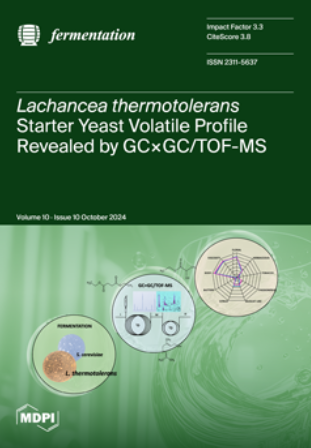探索厌氧消化从中温到嗜热温度-操作和微生物方面
IF 3.3
3区 农林科学
Q2 BIOTECHNOLOGY & APPLIED MICROBIOLOGY
引用次数: 1
摘要
在中温和嗜热温度范围内的不同温度下运行的水资源回收设施(WRRF)中的蒸煮器是一种灵活的概念,有助于热量管理。四个25升的消化池加入了来自城市WRRF的污水污泥,分别在37、43、47和53°C下运行,以描述整体工艺性能和微生物群的变化。比甲烷产量和COD降解率在47°C时最高,与37°C时相比仅高出7%。pH值和NH4-N和PO4-P浓度在43°C以上的增加具有统计学意义。对微生物群落的影响是强烈的,这表明对嗜热生物的持续特化,以及从丙酮碎屑向氢营养/甲基营养产甲烷的变化。与微生物群的变化相比,温度对工艺工程和物理化学方面的影响相当小。本文章由计算机程序翻译,如有差异,请以英文原文为准。
Exploring Anaerobic Digestion from Mesophilic to Thermophilic Temperatures—Operational and Microbial Aspects
Digesters at water resource recovery facilities (WRRFs) operating at different temperatures within the mesophilic and thermophilic temperature range is a flexibilization concept to contribute to heat management. Four 25 L digesters were fed with sewage sludge from a municipal WRRF and were operated at 37, 43, 47 and 53 °C, respectively, to describe changes in the overall process performance and the microbiota. Specific methane yield and COD degradation rates were the highest at 47 °C, only being up to 7% higher compared with at 37 °C. The increase in pH and concentrations of NH4-N and PO4-P above 43 °C were statistically significant. The effect on the microbial community was strong, indicating both a constant specialization towards thermophilic organisms as well as a change from acetoclastic to hydrogenotrophic/methylotrophic methanogenesis. The influence of temperature on process-engineering and physicochemical aspects was rather small compared with the changes in the microbiota.
求助全文
通过发布文献求助,成功后即可免费获取论文全文。
去求助
来源期刊

Fermentation-Basel
BIOTECHNOLOGY & APPLIED MICROBIOLOGY-
CiteScore
3.80
自引率
18.90%
发文量
594
审稿时长
7 weeks
期刊介绍:
Fermentation-Basel is an international open access journal published by MDPI, focusing on fermentation-related research, including new and emerging products, processes and technologies, such as biopharmaceuticals and biotech drugs. The journal enjoys a good reputation in the academic community and provides a high-impact forum for researchers in the field of bioengineering and applied microbiology.
 求助内容:
求助内容: 应助结果提醒方式:
应助结果提醒方式:


